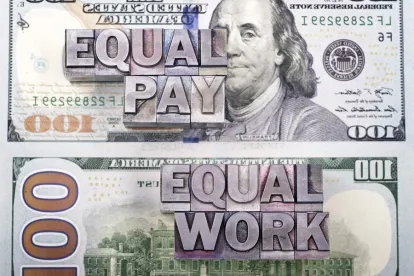First introduced in Congress in 1997, and several times since, the Paycheck Fairness Act is again under consideration by Congress (S. 270/H.R. 7).
If enacted, the bill would attempt to close the gender pay gap by:
- Implementing a wage history ban
- With limited exceptions, employers would be prohibited from requesting or relying on the wage history of a prospective employee.
- Limiting employers’ defenses against a claim of unequal pay
- To defend a claim, an employer would have to show the disparity in pay was due to any bona fide factor other than sex and that the factor:
- (1) Is not based upon or derived from a sex-based differential in compensation;
- (2) Is job-related;
- (3) Is consistent with business necessity; and
- (4) Accounts for the entire differential in compensation.
- To defend a claim, an employer would have to show the disparity in pay was due to any bona fide factor other than sex and that the factor:
- Allowing employees to inquire about and discuss wages without retaliation
- Employers would be prohibited from retaliating against an employee for inquiring about, discussing, or disclosing their own wages or the wages of another employee.
- Enhancing penalties for violations
- The bill would increase penalties for employers, including instating potential punitive damages if employers are found to have acted with malice or reckless indifference.
- The bill also would impose certain civil penalties for violation of the wage history ban.
- Directing pay data collection and analyses
- The bill directs the Equal Employment Opportunity Commission to collect compensation data and other employment-related data from employers.
- It also suggests changes in the way the Office of Federal Contract Compliance Programs pursues pay discrimination claims.
The proposed bill follows pay equity trends at the state and local levels. From salary history bans to pay transparency mandates, as well as efforts to broaden the concept of equal pay for equal work, state and local laws have been taking the lead in pay equity, and employers have been trying to keep up with the rapidly changing and decentralized legal landscape.




 />i
/>i

